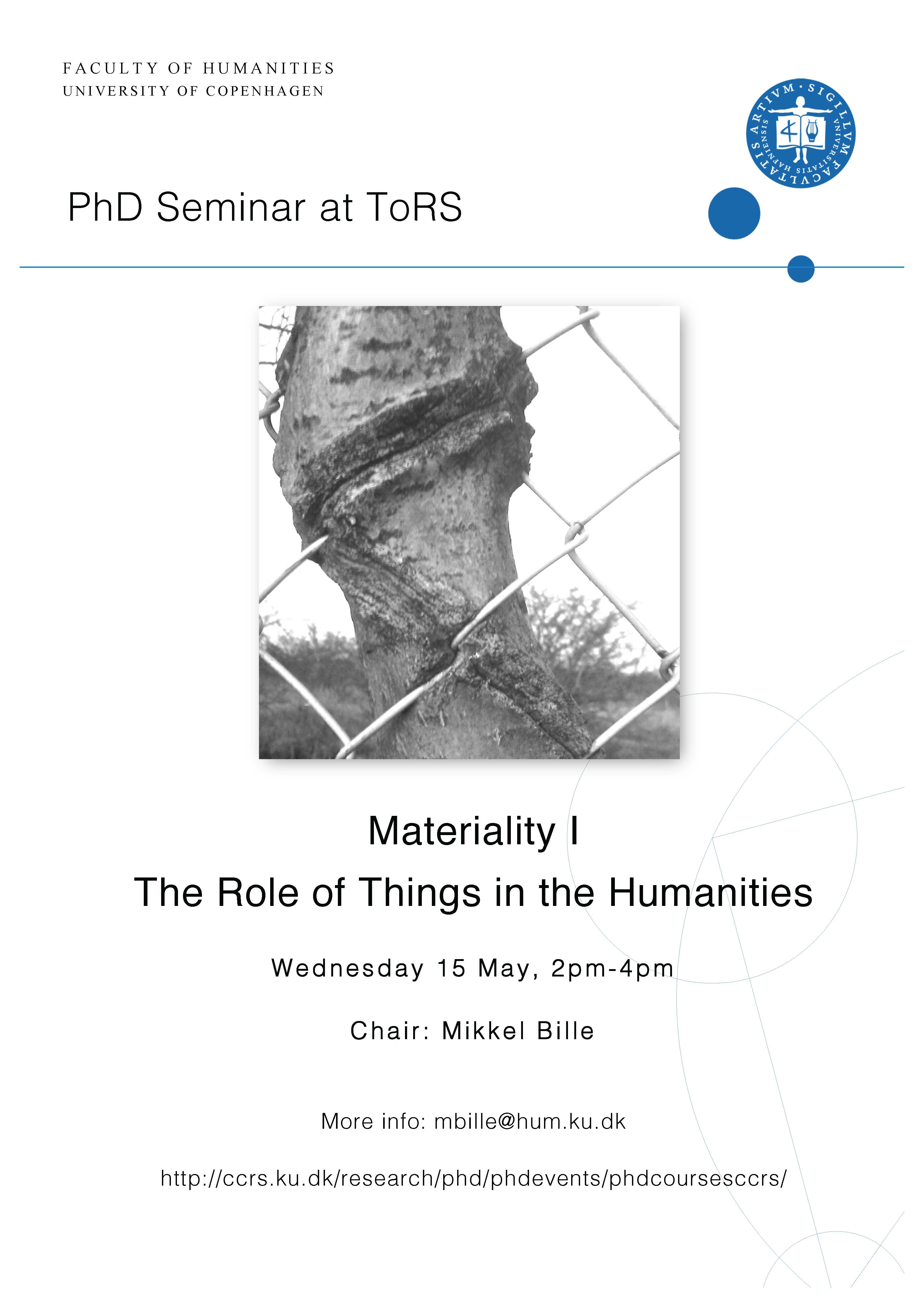Materiality I - The Role of Things in the Humanities
Materiality I
The Role of Things in the Humanities
PhD Seminar at ToRS
Wednesday 15 May, 2pm-4pm
Chair: Mikkel Bille
In the last couple of decades researchers have increasingly turned their attention towards the way things, objects, and technologies shape human life. A general point has been to show how objects shape people, and people shape objects in a dialectical relationship, whether dealing with power, gender, identity, consumption, etc. However, steps have also been taken further to question basic ideas about morality, religion, society and the like that previously have been conceptualized as pertaining solely to the realms of human thought. Such bias is now being confronted by ideas that "Things are moralizing", "All religion is material religion" and networks of human and non-human actors that are continuously "enacted", where materials, as such, do not exist. What can we learn from such perspectives? what are the limits? and what kind of studies in arts and humanities are these perspectives relevant to?
Readings:
- Winner, L. 1986, Do artifacts have politics? The whale and the reactor: a search for limits in an age of high technology; Chicago, University of Chicago Press; 19-39
- Law, J. & Singleton, V. 2005, Object lessons. In Organization, 12 (3), 331-355
- Fowles, S. 2010, People without things. In: M. Bille, F. Hastrup & T. F. Sørensen (eds.), The Anthropology of Absence: Materialisations of Transcendence and Loss; New York, Springer Press; 23-41
- Brown, B. 2001, Thing Theory. In Critical Inquiry, 28 (1), 1-22
ECTS: Preparations and participation 0,3 ECTS
more info: mbille@hum.ku.dk

